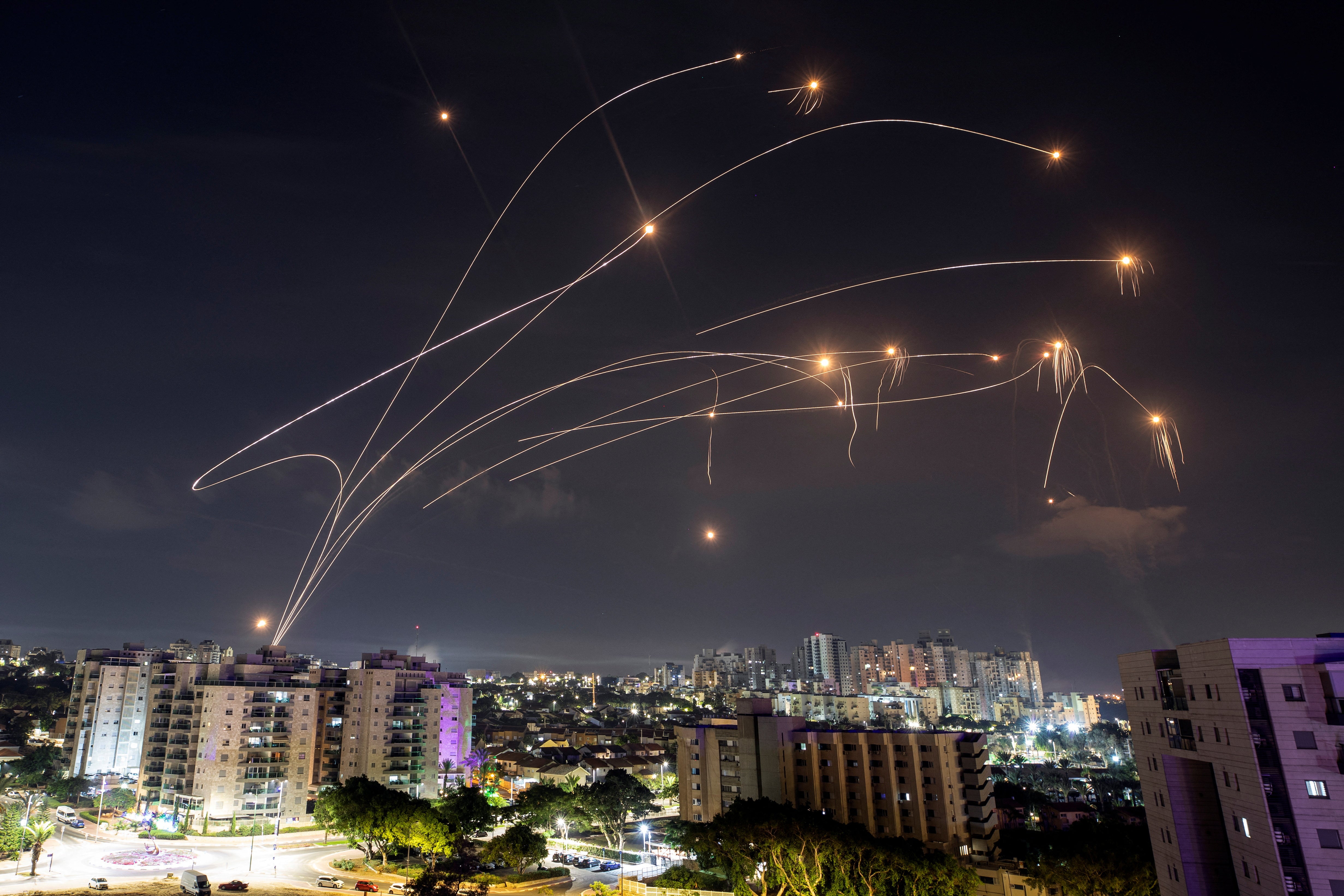Israel must defend itself against such hatred – but not at any cost
Editorial: Rishi Sunak would be wise to at least consider a proposal by Alicia Kearns, Conservative chair of the Commons foreign affairs select committee, for the UK to appoint an envoy on the Middle East peace process

The terrifying incursion by the Islamist Hamas group into southern Israel on a holy day was no spontaneous act, but one that was well planned and probably carried out with outside help.
The seriousness of the latest crisis in the Middle East cannot be overstated; a world that has taken its eye off the Israel-Palestine conflict against the backdrop of war in Ukraine, an aggressive China, the climate emergency and mass migration, must now wake up and pay attention. The conflict is not just back in the headlines, but must inevitably be at the top of the international agenda for some time to come.
Israeli media said more than 600 people had been killed and at least 2,000 wounded in Saturday’s attack, and that Hamas fighters had taken an estimated 100 captured civilians and soldiers into Gaza.
As Tzipi Hotovely, Israel’s ambassador to the UK, writes in The Independent, these actions were “barbaric”. She urges Britons to “stand with us and our right to defend ourselves from evil brutality”, saying: “Hatred is what motivated 9/11. Hatred is what motivated the 7/7 London bombings, the Westminster Bridge attacks, and the Manchester Arena bombing. And it is hatred that drives Hamas to kill innocent Israeli civilians, on our streets and in our communities.”
Israel struck 426 targets in Gaza, according to its military, and the Palestinian health ministry said that more than 370 people had been killed in Gaza, with another 2,200 wounded. The global ramifications were underlined when it emerged that a 26-year-old British citizen was missing after the attack by Hamas.
Indeed, this was Israel’s 9/11 moment – its biggest setback since Syrian and Egyptian forces launched a surprise attack on it at the start of the Yom Kippur war 50 years earlier. Remarkably, one of the most sophisticated intelligence operations in the world had no warning of this totally unjustifiable terrorist attack. The eventual reckoning will not be easy, and is bound to range much wider than an inquiry into an abject failure of intelligence. History suggests that senior heads will roll.
Palestinian fury has been rising amid the unending occupation of the West Bank and the blockade of the small, crowded coastal strip of Gaza. Hamas, which enjoys support from Iran and from Lebanon’s Hezbollah militant group, knew what it was doing, and was surely aware that Benjamin Netanyahu, who heads an extreme right-wing government in Israel, would respond as he did. He declared that his country was “at war”, and that the perpetrators would pay an “unprecedented price”.
For Hamas, one motive was probably to derail the US-led process by which Saudi Arabia and Israel have made progress towards normalising relations – a huge prize for Israel, but one that has left Palestinians feeling betrayed by Arab governments.
Hamas might have chosen to attack when Mr Netanyahu’s government was at a weak point, mired in controversy over its unjustifiable plans to weaken the independence of the country’s supreme court, and with military reservists refusing to serve. They are ready to serve now, and Hamas’s gambit will likely have the effect, initially at least, of uniting a divided nation.
Hamas’s actions are also a huge challenge to the impotent Palestinian authority, whose writ does not run in Hamas-controlled Gaza. There are now genuine fears that many Palestinian lives will be lost as Israel takes bloody revenge. While Israel’s anger and embarrassment are understandable, Hamas’s incursion must not be a pretext for a ground invasion in Gaza, from which Israel withdrew in 2005.
World leaders, while right to condemn Hamas, should make it crystal clear to Israel that its response must be proportionate. This is a time for cool heads, if this crisis is to be prevented from spiralling into a wider conflict. Mr Netanyahu should recognise that he has the support of most of the world, and should not squander it. Leaders should not allow the Israel prime minister to think he has a blank cheque, as he might have assumed after the initial response from both Washington and London.
Joe Biden said: “Israel has the right to defend itself and its people, full stop,” while UK ministers expressed support for Israel “in whatever they decide to do to defend their country against terrorist attacks”. Rishi Sunak will, as ever, want to be on the same page as Mr Biden, but he should not feel that his government needs to parrot every word that comes out of the White House.
The Israel lobby is powerful in Washington, and, as a presidential election looms, Mr Biden is already under pressure from Republicans who have sought to blame his administration’s policies for the terrible developments over the weekend. The UK can play a role in this crisis. Mr Sunak would be wise to at least consider a proposal by Alicia Kearns, the Conservative chair of the Commons foreign affairs select committee, for the UK to appoint an envoy on the Middle East peace process.
Events on the ground will inevitably get worse before they get better. But world leaders will soon need to encourage the Saudi-Israel process, and expend political and diplomatic energy in turning the only long-term show in town – a “two-state solution” – into something more than an empty slogan.






Join our commenting forum
Join thought-provoking conversations, follow other Independent readers and see their replies
0Comments